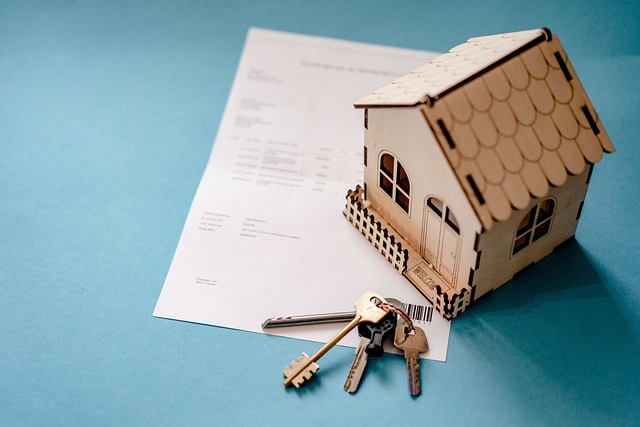Mastering Home Value: A Practical Real Estate Guide
Learn how home value is calculated and why it matters for sellers, buyers, and investors. This comprehensive guide explains the factors that drive property worth, valuation methods like comparative market analysis and cost approach, tools to estimate value, and practical tips to boost your home equity. Ideal for homeowners exploring selling, refinancing, or long-term financial planning, this article offers actionable insights and resources to help you understand and optimize your property value.

Understanding what your home is worth is essential whether you plan to sell, refinance, or simply want a clearer picture of your net worth. Home valuation combines objective data, local market dynamics, and professional judgment. Below is a clear walkthrough of the key influences on property value, common valuation techniques, how often to check your value, tools you can use, and practical ways to raise your homes market appeal.
Key factors that affect a homes value
Several elements play a major role in determining how much a property is worth. Core considerations include size, layout, and condition, but a fuller list helps explain why values vary from one house to the next:
- Age of the property and the condition of its structure
- Recent renovations, upgrades, or deferred maintenance
- Local supply and demand, plus neighborhood market trends
- Proximity to schools, transit, shopping, healthcare, and other amenities
- Lot size, outdoor space, landscaping, and curb appeal
- Distinctive architectural features, finishes, or historical significance
Each of these factors can move the needle differently depending on local buyer preferences and the broader economic environment.
Common methods used to determine value
Professionals use several established approaches to estimate a homes market value. Two of the most frequently used are the comparative market analysis and the cost approach.
Comparative Market Analysis (CMA): This is the most common method used by real estate agents. It examines recent sales of similar homes nearby, adjusting for differences in square footage, number of bedrooms and bathrooms, lot size, and overall condition. A well-executed CMA provides a realistic range of likely sale prices based on current market activity.
Cost Approach: This technique estimates how much it would cost to reproduce or replace the home at current construction prices, then adds the land value and accounts for depreciation. The cost approach is particularly helpful for newer or unique properties where true comparables are scarce.
Appraisals and other tools: Licensed appraisers combine elements of the sales comparison, cost, and income approaches when applicable. For investment properties, the income approach — which looks at potential rental income and capitalization rates — can also be relevant.
Why knowing your homes value matters
Understanding your homes market value influences several important financial decisions:
- Pricing for sale: A realistic asking price attracts buyers and reduces time on market while protecting your sale proceeds.
- Refinancing decisions: Lenders require a current valuation to approve mortgage refinancing and set loan-to-value ratios.
- Financial planning: Home equity is often a large portion of personal net worth and informs retirement planning, borrowing capacity, and estate decisions.
A clear grasp of value helps you avoid overpricing, missing refinancing opportunities, or misjudging your financial position.
How often should you reassess value?
Real estate markets change. As a rule of thumb, an annual check-in is sensible for most homeowners. However, reassess more often if you experience any of the following:
- Noticeable swings in local property sales or market conditions
- Completion of major renovations or additions
- New infrastructure, zoning changes, or developments nearby
- Broader economic changes that affect mortgage rates and buyer demand
Regular updates keep you ready to act whether you want to sell, refinance, or make further investments in your property.
Practical tools for estimating home value
Homeowners have several options to estimate value before engaging a professional:
- Online estimators: Real estate websites offer instant, automated estimates using public records and recent sales. These are convenient but often imprecise.
- Real estate agent CMAs: Many agents provide free comparative market analyses that incorporate local knowledge and recent closings.
- County assessor records: These show assessed values for tax purposes, which may differ from market value.
- Professional appraisals: A licensed appraisal gives the most reliable, lender-acceptable valuation though it carries a fee.
Ways to increase your homes value
Smart improvements can boost resale value and overall appeal. Priority projects that typically yield good returns include:
- Updating kitchens and bathrooms with modern fixtures and finishes
- Improving energy efficiency through insulation, windows, or efficient heating and cooling
- Enhancing curb appeal with landscaping, clean siding, and maintained exteriors
- Adding usable square footage through well-planned additions or converting underused space
- Installing sought-after features such as updated systems, smart-home devices, or quality flooring
- Keeping major systems like HVAC, electrical, and plumbing in good repair
Remember that return on investment varies by market. Research local buyer preferences before undertaking major projects.
| Valuation Method | Typical Cost Range |
|---|---|
| Online estimator | Free to low cost |
| Agent comparative market analysis | Often free |
| Professional appraisal | $300 - $700+ |
| Detailed inspection / specialized reports | $500 - $2,000+ |
Cost Disclaimer: The prices above are approximate estimates for informational purposes and can vary by location, provider, and scope of service. Always confirm quotes with professionals.
Final considerations
A well-informed understanding of home value empowers better decisions about selling, refinancing, or long-term financial planning. Use a mix of online tools, expert input, and periodic reassessments to stay current. When in doubt, a licensed appraiser or an experienced local agent can provide the most reliable snapshot of what your property is truly worth in todays market.






